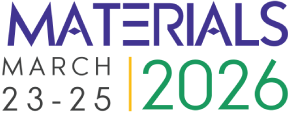Title : Improving the surface properties of materials and biomaterials by electrochemical methods
Abstract:
In recent years, the development of nanotechnology and nanomaterials has promoted an explosion of new functional coatings and this trend will continue to grow in the coming years. Functional and intelligent coatings are undoubtedly a class of materials of enormous technological interest. Among the many processes and technologies for functionalization and surface protection, this article further discusses some examples and advantages of electrochemical methods applied in modifying the surfaces of materials to improve their properties. Two electrochemical methods are applied and improved for the functionalization of surfaces, each with specific applications, but both with the possibility of improving the surface properties of materials or biomaterials as the corrosion or tribocorrosion resistance of in specific environments of use. (i) Electrochemical deposition of metals, alloys and hybrid layers, nanostructured and nanocomposites, also framed as bottom-up nanotechnology and (ii) Controlled growth of oxide films on the surface of metals and alloys by electrochemical techniques, associated with one of the characteristic methods obtaining nanomaterials, respectively the top-down method. The paper presents a summary of the results obtained in the production of nanocomposite layers on the surface of materials and the controlled growth of oxide layers on different metals and alloys, thus improving the properties of these materials in their operating environments. Nanocomposites are composites in which the dispersed phase has dimensions of the order of nanometers (1-100 nm). These are high-performance materials belonging to the 21st century and possessing unusual combinations of unique properties and design possibilities that are not found in conventional composites. Obtaining these nanocomposite layers is a niche area in the development of international and national micro-enterprises. In the field of implants, surface modification has become essential. Currently, there is an increasing emphasis on alternative solutions, such as coatings with functional layers by electrodeposition, to solve the problems at the implant-tissue interface. Changes in surface properties can also be made by controlled anodic oxidation which is an electrochemical method to produce different types of nanoporous oxide films in order to protect metals and alloys. Anodic oxidation includes electrode reactions in combination with an electric field and the diffusion of oxygen ions, which thus lead to the formation of an oxide layer on the surface of the anode (material).



